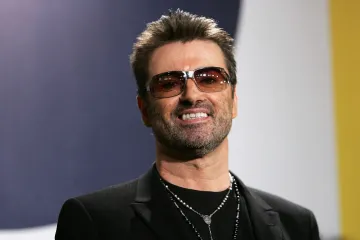George Michael’s ‘mystery’ pal Kay Beckenham dies triggering sale of luxury gifts he sent her including £6k sunglasses
GEORGE Michael’s pal Kay Beckenham has died — triggering a sale of lavish gifts he sent her.
The British model was dubbed the pop star’s “mystery girl” when they were regularly seen together in the 1980s and 1990s.
In 2019 we reported that Kay, then 54, was shocked to learn she was a beneficiary of his £98million will following his death three years earlier.
Kay’s death was revealed as her daughter auctioned presents her mum received from George, including a pair of his Cutler and Gross wraparound sunglasses, which sold for £5,700.
Other precious gifts included his engraved silver Faith tour belt buckle, which fetched £700.
A Cartier watch went for £1,900 while a Bulgari 18ct gold ladies’ timepiece was bought for £1,200.
READ MORE ON GEORGE MICHAEL
Kay is believed to have been in her early 60s when she died, and her daughter has paid tribute to “kind” George.
She wrote in a letter of provenance for the sale at Omega Auctions: “My mother and George shared a strong, loving and enduring bond that began at the very start of his career.”
She said the singer became her godfather after her birth in 1999, and he helped host her parents’ wedding on Richard Branson’s Necker Island.
She went on: “I have vivid memories — formed later through photographs — of George travelling with my parents, clambering into private jets, and setting off on adventures together.
“As a child, I ran around the house blissfully unaware of the global stardom surrounding me. To me, he was simply a familiar, kind presence in our lives.”
Kay’s friendship with George helped him put together the supermodel line-up of Naomi Campbell, Linda Evangelista, Tatjana Patitz, Christy Turlington Burns and Cindy Crawford for his 1990 Freedom video.
The Wake Me Up Before You Go-Go star — who died at his home on Christmas Day 2016 — divided his fortune between his sisters, dad and friends.
Omega said: “These pieces tell a story of loyalty, trust and the man behind the icon.”


